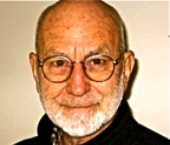 By Ray Grigg —
By Ray Grigg —
Most economists like to think that economics is a science. So they advance economic theories, governments confidently design economic policies, politicians vigorously justify their economic action plans, and the lives of countless people are guided by strategies that are presented as necessities. Success is guaranteed by assiduously following the rules. This, unfortunately, misrepresents the reality of economics.
The Great Recession of 2008, an event that was not supposed to happen, sent shockwaves throughout the science of economics. By the time thoughtful economists, psychologists, sociologists, philosophers, archaeologists, and historians finished their analysis of economic theories, little remained to argue that economics is a science.
Historians, for example, have noticed that almost any economic system works relatively well, and that modern free-market capitalism is just today’s preference. Its enchanting spell is cultivated by those who most benefit from its particular attributes. Or to phrase this conclusion differently, economics is political.
Benjamin Kunkel in Paupers and Richlings, a review of Thomas Piketty’s seminal book, Capital in the Twenty-First Century, notes that Piketty “is one of the few contemporary economists eager to revive the old-fashioned spirit of political economy. The story of modern economic thought,” Kunkel writes, “can after all be told as the shift from political economy, as its practitioners thought of it, to the discipline now simply called economics.”
The separation of “political” from its association with economics gives the impression that economics is a science, that it functions in compliance with some unquestionable force similar to natural law and is therefore unassailable by those who are abused, exploited, or offended by what it does to themselves, to others, or to the planet. “Political” puts it in its place. Economics is political. The two are inseparable. Examine any economic theory, practice, or strategy and a political philosophy is exposed.
This is no small matter. The notion of a “resource economy” reveals a whole set of assumptions and values about our relationship to nature, to each other, to priorities, to wealth, and to the source of wealth. The notion of an “oil economy” reveals a related set of assumptions and values. Mines, tailing ponds, coal trains, refineries, pipelines, and tankers are only mandatory within that political framework. The notion of a “consumer economy” or a “carbon economy” each entails its own set of political beliefs. Change the notion to a “solar economy” or an “information economy” and a whole new set of options arise. Economies are essentially political. And political attitudes are rooted deeply in the irrational.
This idea is explored more fully in Economics: A User’s Guide by Ha-Joon Chang. He, too, endorses the conclusion that every economic system is workable, that no absolute truth exists in economics, and that economics can never be a science. And he, too, argues that economics is political, and that “politics is creating, shaping, and reshaping markets before any transaction can begin.”
According to Zoe Williams in, “Out of the Marketplace and on to the Hustings,” which appeared in Guardian Weekly, June 20, 2014 an economic system only fails to the extent that it doesn’t do what it purports to be able to do; it’s only successful to the extent that it expresses the needs, “beliefs, impulses, and feeling that are deeper than money.” Money is only the surface expression of economics. What we really want from economics are other things: self-esteem, security, comfort, friendship, respect, belonging, acceptance. We are, after all, essentially social and communal beings, not monetary and consuming beings.
Reuniting politics with economics provides perspective and insights. Consider the so-called “carbon economy,” a system of wealth production that now causes an estimated $1.2 trillion per year in costs from environmental damage and climate change, according to the CCPA Monitor, July/August, 2014. Germany, one of the most industrialized countries in the world, is moving away from the carbon economy by using political measures to go solar. On June 9, 2014, it produced a peak of 23.1 GW hours of electrical power from the sun, an amazing 50.6% of its total energy needs, illustrating dramatically that global climate change is more a political problem than a technological one.
Or consider Norway and its response to the ephemerality of its oil and gas supplies. Instead of luring corporate investment with low royalties and distorting its economy with a flood of wealth from these resources, Norway chose to levy high royalties and invest the profits in a legacy fund that has reached nearly $1 trillion for future Norwegian use. By doing so, it avoided the inflation, and economic and social disruption caused by the so-called “Dutch Disease,” a process in which a sudden surge in resource revenues raises the value of the currency, inflates the cost of exports, and hollows out local industries.
Or consider Canada and the economic policy of its government since 2005. According to the Parliamentary Budget Office, it has reduced its annual revenue by $17.1 billion from income tax, $13.3 billion from GST/HST, and an estimated $13 billion from corporate taxes. This total of $43.4 billion, had it been spent on social services, could have eliminated all university tuition ($5.9 billion), instituted a national pharmacare system ($4.5 billion), and provided an affordable national childcare plan ($6 billion), with another $27 billion left over for various other programs. The country we get is determined by the economic policy we select through political processes. This makes economics political.
Governments, according to Thomas Piketty, Benjamin Kunkel, Ha-Joon Chang, and a growing list of other prominent thinkers, choose the economics that suit their political philosophies. Economics is not a science but a service that is adjusted to fit the results we ask of it. So changing our economics is as simple as changing our politics.
Ray Grigg is the author of seven books on Eastern philosophy and has been publishing a weekly environmental newspaper column, Shades of Green, since 2002.
